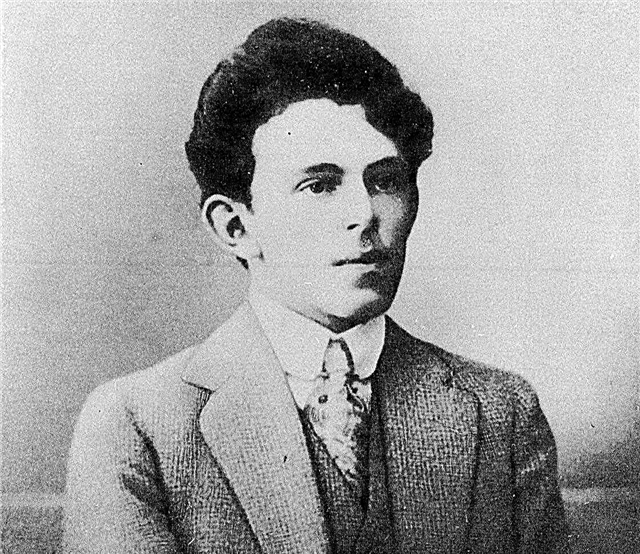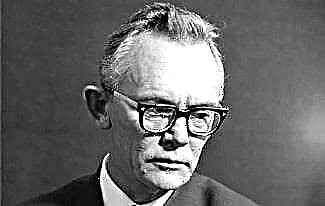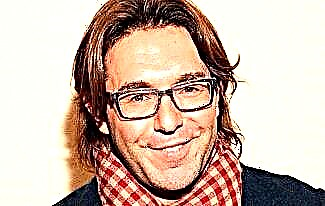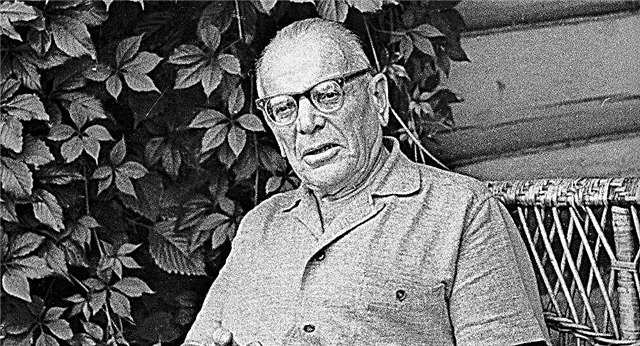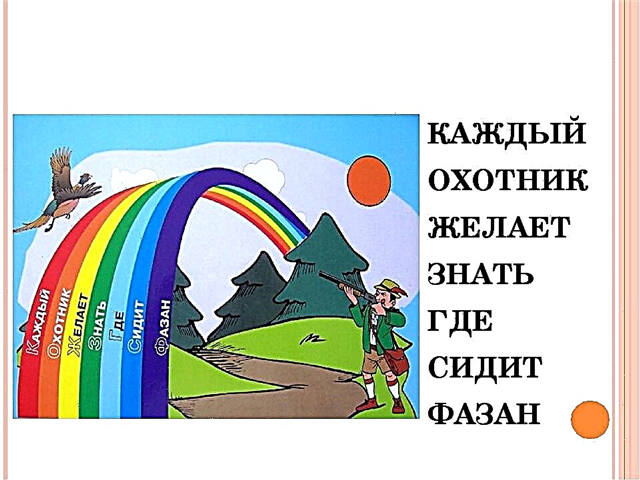Konstantin Dmitrievich Ushinsky (1823-1870) - Russian teacher, writer, founder of scientific pedagogy in Russia. He developed an effective pedagogical system, and also became the author of a number of scientific works and children's works.
There are many interesting facts in the biography of Ushinsky, which we will talk about in this article.
So, before you is a short biography of Konstantin Ushinsky.

Biography of Ushinsky
Konstantin Ushinsky was born on February 19 (March 3) 1823 in Tula. He grew up in the family of a retired officer and official Dmitry Grigorievich and his wife Lyubov Stepanovna.
Childhood and youth
Almost immediately after the birth of Konstantin, his father was appointed a judge in the small town of Novgorod-Seversky (Chernigov province). As a result, it was here that the whole childhood of the future teacher passed.
The first tragedy in the biography of Ushinsky occurred at the age of 11 - his mother, who loved her son and was engaged in his education, died. Thanks to good home preparation, it was not difficult for the boy to enter the gymnasium and, moreover, immediately to the 3rd grade.
Konstantin Ushinsky spoke highly of the director of the gymnasium, Ilya Timkovsky. According to him, the man was literally obsessed with science and tried to do everything possible to ensure that students receive the highest quality education.
After receiving the certificate, the 17-year-old boy entered Moscow University, choosing the legal department. He showed particular interest in philosophy, jurisprudence and literature. Having received a diploma, the guy stayed at his home university to prepare for a professorship.
In those years, Ushinsky reflected on the problems of enlightening the common people, who for the most part remained illiterate. When Konstantin became a candidate of legal sciences, he went to Yaroslavl, where in 1846 he began teaching at the Demidov Lyceum.

The relationship between teacher and students was very simple and even friendly. Ushinsky tried to avoid various formalities in the classroom, which aroused indignation among the leadership of the lyceum. This led to the establishment of secret surveillance over him.
Due to repeated denunciations and conflicts with his superiors, Konstantin Dmitrievich decides to leave the lyceum in 1849. In subsequent years of his biography, he earned a living by translating foreign articles and reviews in publications.
Over time, Ushinsky decided to leave for St. Petersburg. There he worked as a minor official in the Department of Spiritual Affairs and Foreign Confessions, and also collaborated with the publications Sovremennik and Library for Reading.
Pedagogy
When Ushinsky turned 31, he was helped to get a job at the Gatchina Orphanage Institute, where he taught Russian literature. He was faced with the task of educating students in the spirit of devotion to "the king and the fatherland."
At the institute, where strict procedures were established, they were engaged in the education of potential officials. Students were punished for even minor violations. In addition, the students denounced each other, as a result of which there was a cold relationship between them.
About six months later, Ushinsky was entrusted with the position of inspector. Having received broader powers, he was able to arrange the educational process in such a way that denunciations, theft and any hostility gradually disappeared.

Soon Konstantin Ushinsky came across the archive of one of the previous inspectors of the university. It consisted of many pedagogical works that made an indelible impression on the man.
The knowledge gained from these books inspired Ushinsky so much that he decided to write his vision of education. He became the author of one of the best works on pedagogy - "On the Benefits of Pedagogical Literature", which created a real sensation in society.
Having gained considerable popularity, Konstantin Ushinsky began to publish articles in the "Journal for Education", "Contemporary" and "Library for Reading".
In 1859, the teacher was entrusted with the post of class inspector at the Smolny Institute for Noble Maidens, where he was able to carry out many effective changes. In particular, Ushinsky achieved the abolition of the social division between students - into “noble” and “ignoble”. The latter included people from bourgeois families.
The man insisted that the disciplines be taught in Russian. He opened a teaching class, thanks to which the students were able to become qualified educators. He also allowed girls to visit their families during vacations and holidays.
Ushinsky was the initiator of the introduction of meetings of educators, which discussed various topics and advanced views in the field of education. Through these meetings, teachers could get to know each other better and share their ideas.
Konstantin Ushinsky had great authority among colleagues and students, but his innovative sentiments were not to the liking of the leadership of the university. Therefore, in order to get rid of his "inconvenient" colleague, in 1862 he was sent on a business trip abroad for 5 years.
The time spent abroad was not wasted for Ushinsky. He visited several European countries, observing different educational institutions - kindergartens, schools and orphanages. He shared his observations in the books "Native Word" and "Children's World".
These works do not lose their relevance today, having withstood about one and a half hundred reprints. In addition to scientific works, Konstantin Dmitrievich became the author of many fairy tales and stories for children. His last major scientific work was entitled "Man as a subject of education, the experience of pedagogical anthropology." It consisted of 3 volumes, the last of which remained unfinished.
Personal life
Ushinsky's wife was Nadezhda Doroshenko, with whom he had known since his youth. The young people decided to get married in 1851. In this marriage, the couple had six children: Pavel, Vladimir, Konstantin, Vera, Olga and Nadezhda.
An interesting fact is that Ushinsky's daughters continued their father's business, organizing educational institutions.
Death
In the last years of his life, Konstantin Dmitrievich received universal recognition. He was invited to participate in professional conventions and convey his ideas to people. At the same time, he continued to improve his pedagogical system.
A few years before his death, the man went to Crimea for treatment, but caught a cold on the way to the peninsula. For this reason, he decided to stay for treatment in Odessa, where he later died. Konstantin Ushinsky died on December 22, 1870 (January 3, 1871) at the age of 47.
Ushinsky Photos





